1.Identification
1.1 GHS Product identifier
| Product name | N,N-dimethylacetamide |
|---|
1.2 Other means of identification
| Product number | - |
|---|---|
| Other names | N,N-Dimethylacetamide |
1.3 Recommended use of the chemical and restrictions on use
| Identified uses | For industry use only. CBI,Finishing agents,Intermediates,Processing aids, not otherwise listed,Solvents (which become part of product formulation or mixture) |
|---|---|
| Uses advised against | no data available |
1.4 Supplier's details
| Company | MOLBASE (Shanghai) Biotechnology Co., Ltd. |
|---|---|
| Address | Floor 4 & 5, Building 12, No. 1001 North Qinzhou Road, Xuhui District, Shanghai, China |
| Telephone | +86(21)64956998 |
| Fax | +86(21)54365166 |
1.5 Emergency phone number
| Emergency phone number | +86-400-6021-666 |
|---|---|
| Service hours | Monday to Friday, 9am-5pm (Standard time zone: UTC/GMT +8 hours). |
2.Hazard identification
2.1 Classification of the substance or mixture
Acute toxicity - Dermal, Category 4
Acute toxicity - Inhalation, Category 4
Reproductive toxicity, Category 1B
2.2 GHS label elements, including precautionary statements
| Pictogram(s) | 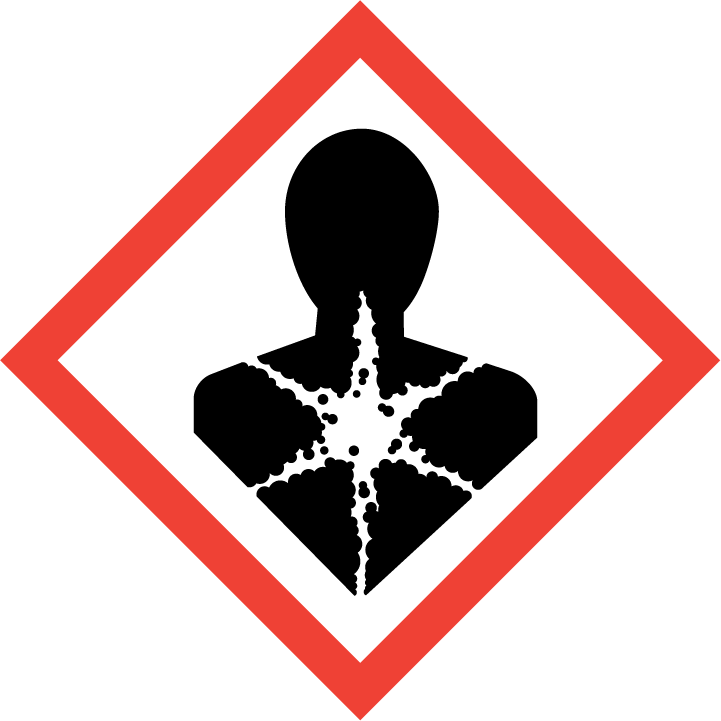 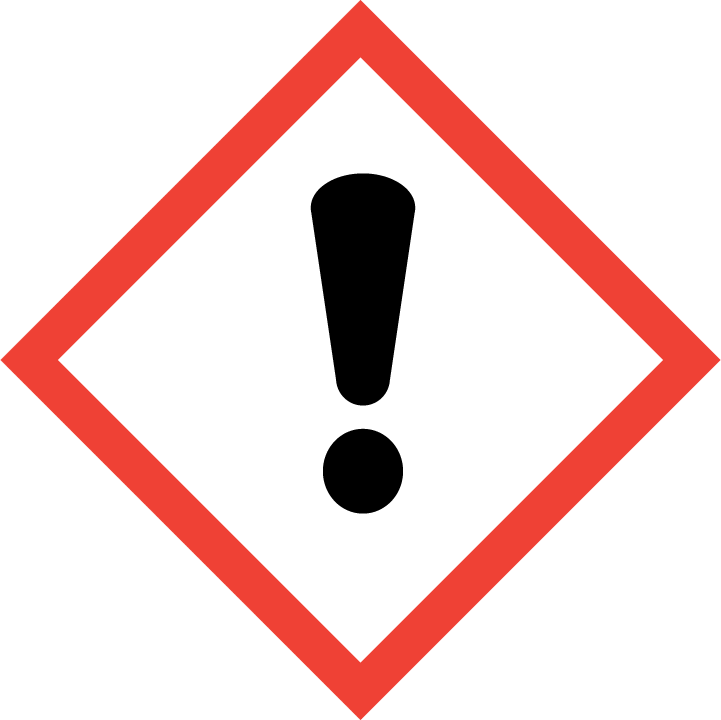 |
|---|---|
| Signal word | Danger |
| Hazard statement(s) | H312 Harmful in contact with skin H332 Harmful if inhaled |
| Precautionary statement(s) | |
| Prevention | P280 Wear protective gloves/protective clothing/eye protection/face protection. P261 Avoid breathing dust/fume/gas/mist/vapours/spray. P271 Use only outdoors or in a well-ventilated area. P201 Obtain special instructions before use. P202 Do not handle until all safety precautions have been read and understood. |
| Response | P302+P352 IF ON SKIN: Wash with plenty of water/... P312 Call a POISON CENTER/doctor/…if you feel unwell. P321 Specific treatment (see ... on this label). P362+P364 Take off contaminated clothing and wash it before reuse. P304+P340 IF INHALED: Remove person to fresh air and keep comfortable for breathing. P308+P313 IF exposed or concerned: Get medical advice/ attention. |
| Storage | P405 Store locked up. |
| Disposal | P501 Dispose of contents/container to ... |
2.3 Other hazards which do not result in classification
none
3.Composition/information on ingredients
3.1 Substances
| Chemical name | Common names and synonyms | CAS number | EC number | Concentration |
|---|---|---|---|---|
| N,N-dimethylacetamide | N,N-dimethylacetamide | 127-19-5 | none | 100% |
4.First-aid measures
4.1 Description of necessary first-aid measures
General advice
Consult a physician. Show this safety data sheet to the doctor in attendance.
If inhaled
Fresh air, rest. Refer for medical attention.
In case of skin contact
Remove contaminated clothes. Rinse and then wash skin with water and soap. Refer for medical attention .
In case of eye contact
First rinse with plenty of water for several minutes (remove contact lenses if easily possible), then refer for medical attention.
If swallowed
Rinse mouth. Give one or two glasses of water to drink. Do NOT induce vomiting. Seek medical attention if you feel unwell.
4.2 Most important symptoms/effects, acute and delayed
Liquid causes mild irritation of eyes and skin. Ingestion causes depression, lethargy, confusion and disorientation, visual and auditory hallucinations, perceptual distortions, delusions, emotional detachment, and affective blunting. (USCG, 1999)
4.3 Indication of immediate medical attention and special treatment needed, if necessary
Skin exposures should be followed by prompt water flushing. Eye exposure should be followed by immediate saline irrigation & an ophthalmology review. Oral ingestions of DMAC should be treated symptomatically & supportively in a hospital. Liver function tests should be obtained periodically as indicated.
5.Fire-fighting measures
5.1 Extinguishing media
Suitable extinguishing media
EXTINGUISH WITH WATER, DRY CHEMICALS, ALCOHOL FOAM OR CARBON DIOXIDE
5.2 Specific hazards arising from the chemical
This chemical is combustible.
5.3 Special protective actions for fire-fighters
Wear self-contained breathing apparatus for firefighting if necessary.
6.Accidental release measures
6.1 Personal precautions, protective equipment and emergency procedures
Use personal protective equipment. Avoid dust formation. Avoid breathing vapours, mist or gas. Ensure adequate ventilation. Evacuate personnel to safe areas. Avoid breathing dust. For personal protection see section 8.
6.2 Environmental precautions
Personal protection: chemical protection suit. Collect leaking and spilled liquid in sealable containers as far as possible. Absorb remaining liquid in sand or inert absorbent. Then store and dispose of according to local regulations.
6.3 Methods and materials for containment and cleaning up
1. Ventilate the area of spill or leak. 2. For small quantities, absorb on paper towels. Evaporate in safe place (such as fume hood). Allow sufficient time for evaporating vapors to completely clear the hood ductwork. Burn paper in suitable location away from combustible materials.
7.Handling and storage
7.1 Precautions for safe handling
Avoid contact with skin and eyes. Avoid formation of dust and aerosols. Avoid exposure - obtain special instructions before use.Provide appropriate exhaust ventilation at places where dust is formed. For precautions see section 2.2.
7.2 Conditions for safe storage, including any incompatibilities
Ventilation along the floor. Separated from strong oxidants.MATERIALS WHICH ARE TOXIC AS STORED OR WHICH CAN DECOMPOSE INTO TOXIC COMPONENTS ... SHOULD BE STORED IN A COOL WELL VENTILATED PLACE, OUT OF DIRECT RAYS OF THE SUN, AWAY FROM AREAS OF HIGH FIRE HAZARD, AND SHOULD BE PERIODICALLY INSPECTED. INCOMPATIBLE MATERIALS SHOULD BE ISOLATED ... .
8.Exposure controls/personal protection
8.1 Control parameters
Occupational Exposure limit values
Recommended Exposure Limit: 10 Hr Time-Weighted Avg: 10 ppm (35 mg/cu m), skin
Biological limit values
no data available
8.2 Appropriate engineering controls
Handle in accordance with good industrial hygiene and safety practice. Wash hands before breaks and at the end of workday.
8.3 Individual protection measures, such as personal protective equipment (PPE)
Eye/face protection
Safety glasses with side-shields conforming to EN166. Use equipment for eye protection tested and approved under appropriate government standards such as NIOSH (US) or EN 166(EU).
Skin protection
Wear impervious clothing. The type of protective equipment must be selected according to the concentration and amount of the dangerous substance at the specific workplace. Handle with gloves. Gloves must be inspected prior to use. Use proper glove removal technique(without touching glove's outer surface) to avoid skin contact with this product. Dispose of contaminated gloves after use in accordance with applicable laws and good laboratory practices. Wash and dry hands. The selected protective gloves have to satisfy the specifications of EU Directive 89/686/EEC and the standard EN 374 derived from it.
Respiratory protection
Wear dust mask when handling large quantities.
Thermal hazards
no data available
9.Physical and chemical properties
| Physical state | Clear, colorless liquid |
|---|---|
| Colour | Liquid |
| Odour | AMINE |
| Melting point/ freezing point | 4°C(lit.) |
| Boiling point or initial boiling point and boiling range | 164.5-166°C(lit.) |
| Flammability | Class IIIA Combustible Liquid: Fl.P. at or above 60°C and below 93.33°C.Combustible. Gives off irritating or toxic fumes (or gases) in a fire. |
| Lower and upper explosion limit / flammability limit | LOWER FLAMMABLE LIMIT: 1.8% BY VOL @ 212 DEG F; UPPER FLAMMABLE LIMIT: 11.5% BY VOL @ 320 DEG F |
| Flash point | 70°C |
| Auto-ignition temperature | 490°C |
| Decomposition temperature | no data available |
| pH | no data available |
| Kinematic viscosity | 0.92 cP @ 25°C |
| Solubility | In water:miscible |
| Partition coefficient n-octanol/water (log value) | log Kow= -0.77 |
| Vapour pressure | 40 mm Hg ( 19.4 °C) |
| Density and/or relative density | 0.937g/mLat 25°C(lit.) |
| Relative vapour density | 3.89 (vs air) |
| Particle characteristics | no data available |
10.Stability and reactivity
10.1 Reactivity
no data available
10.2 Chemical stability
Stable under recommended storage conditions.
10.3 Possibility of hazardous reactions
Combustible when exposed to heat or flame.DIMETHYLACETAMIDE is an amide. Incompatible with oxidizing agents and halogenated compounds. Exothermic reactions occur with carbon tetrachloride and hexachlorocyclohexane. It can react violently in the presence of iron. Special Hazards of Combustion Products: Emits carbon oxides, nitrogen oxides, and dimethylamine when heated to decomposition.
10.4 Conditions to avoid
no data available
10.5 Incompatible materials
Carbon tetrachloride, other halogenated compounds when in contact with iron, oxidizers.
10.6 Hazardous decomposition products
ON DECOMPOSITION CAN EMIT FUMES HIGHLY IRRITATING TO EYES, MUCOUS MEMBRANES.
11.Toxicological information
Acute toxicity
- Oral: LD50 Rat oral 5.4 ml/kg
- Inhalation: LC50 Rat inhalation 2475 ppm/1 hr
- Dermal: no data available
Skin corrosion/irritation
no data available
Serious eye damage/irritation
no data available
Respiratory or skin sensitization
no data available
Germ cell mutagenicity
no data available
Carcinogenicity
A4: Not classifiable as a human carcinogen.
Reproductive toxicity
no data available
STOT-single exposure
no data available
STOT-repeated exposure
no data available
Aspiration hazard
no data available
12.Ecological information
12.1 Toxicity
- Toxicity to fish: LC50 Pimephales promelas (fathead minnow) 1.50 g/l/96 hr (confidence limit 1.21- 1.86 g/l), flow-through bioassay with measured concentrations, 23.1°C, dissolved oxygen 6.6 mg/l, hardness 45.0 mg/l calcium carbonate, alkalinity 43.5 mg/l calcium carbonate, and pH 7.7.
- Toxicity to daphnia and other aquatic invertebrates: no data available
- Toxicity to algae: no data available
- Toxicity to microorganisms: no data available
12.2 Persistence and degradability
AEROBIC: N,N-Dimethylacetamide, present at 100 mg/l reached 28% of its theoretical BOD in 4 weeks using an activated sludge inoculum at 30 mg/l and the Japanese MITI test(1). N,N-Dimethylacetamide, present at 30 mg/l, reached 80% of its theoretical BOD in 4 weeks using an activated sludge inoculum at 100 mg/l and the Japanese MITI test(1). In other studies, N,N-dimethylacetamide, present at 400 mg/l, reached 96% of its theoretical TOC in 5 days using industrial activated sludge(2). These results from laboratory studies suggest that N,N-dimethylacetamide will biodegrade in the environment(SRC).
12.3 Bioaccumulative potential
An estimated BCF of 3 was calculated for N,N-dimethylacetamide(SRC), using a log Kow of -0.77(1) and a regression-derived equation(2). According to a classification scheme(3), this BCF suggests the potential for bioconcentration in aquatic organisms is low(SRC).
12.4 Mobility in soil
The Koc of N,N-dimethylacetamide is estimated as 9(SRC), using a measured log Kow of -0.77(1) and a regression-derived equation(2). According to a classification scheme(3), this estimated Koc value suggests that N,N-dimethylacetamide is expected to have very high mobility in soil(SRC).
12.5 Other adverse effects
no data available
13.Disposal considerations
13.1 Disposal methods
Product
The material can be disposed of by removal to a licensed chemical destruction plant or by controlled incineration with flue gas scrubbing. Do not contaminate water, foodstuffs, feed or seed by storage or disposal. Do not discharge to sewer systems.
Contaminated packaging
Containers can be triply rinsed (or equivalent) and offered for recycling or reconditioning. Alternatively, the packaging can be punctured to make it unusable for other purposes and then be disposed of in a sanitary landfill. Controlled incineration with flue gas scrubbing is possible for combustible packaging materials.
14.Transport information
14.1 UN Number
| ADR/RID: UN1993 | IMDG: UN1993 | IATA: UN1993 |
14.2 UN Proper Shipping Name
| ADR/RID: FLAMMABLE LIQUID, N.O.S. |
| IMDG: FLAMMABLE LIQUID, N.O.S. |
| IATA: FLAMMABLE LIQUID, N.O.S. |
14.3 Transport hazard class(es)
| ADR/RID: 8 | IMDG: 8 | IATA: 8 |
14.4 Packing group, if applicable
| ADR/RID: II | IMDG: II | IATA: II |
14.5 Environmental hazards
| ADR/RID: no | IMDG: no | IATA: no |
14.6 Special precautions for user
no data available
14.7 Transport in bulk according to Annex II of MARPOL 73/78 and the IBC Code
no data available
15.Regulatory information
15.1 Safety, health and environmental regulations specific for the product in question
| Chemical name | Common names and synonyms | CAS number | EC number |
|---|---|---|---|
| N,N-dimethylacetamide | N,N-dimethylacetamide | 127-19-5 | none |
| European Inventory of Existing Commercial Chemical Substances (EINECS) | Listed. | ||
| EC Inventory | Listed. | ||
| United States Toxic Substances Control Act (TSCA) Inventory | Listed. | ||
| China Catalog of Hazardous chemicals 2015 | Not Listed. | ||
| New Zealand Inventory of Chemicals (NZIoC) | Listed. | ||
| Philippines Inventory of Chemicals and Chemical Substances (PICCS) | Listed. | ||
| Vietnam National Chemical Inventory | Listed. | ||
| Chinese Chemical Inventory of Existing Chemical Substances (China IECSC) | Listed. | ||
16.Other information
Information on revision
| Creation Date | Aug 10, 2017 |
|---|---|
| Revision Date | Aug 10, 2017 |
Abbreviations and acronyms
- CAS: Chemical Abstracts Service
- ADR: European Agreement concerning the International Carriage of Dangerous Goods by Road
- RID: Regulation concerning the International Carriage of Dangerous Goods by Rail
- IMDG: International Maritime Dangerous Goods
- IATA: International Air Transportation Association
- TWA: Time Weighted Average
- STEL: Short term exposure limit
- LC50: Lethal Concentration 50%
- LD50: Lethal Dose 50%
- EC50: Effective Concentration 50%
References
- IPCS - The International Chemical Safety Cards (ICSC), website: http://www.ilo.org/dyn/icsc/showcard.home
- HSDB - Hazardous Substances Data Bank, website: https://toxnet.nlm.nih.gov/newtoxnet/hsdb.htm
- IARC - International Agency for Research on Cancer, website: http://www.iarc.fr/
- eChemPortal - The Global Portal to Information on Chemical Substances by OECD, website: http://www.echemportal.org/echemportal/index?pageID=0&request_locale=en
- CAMEO Chemicals, website: http://cameochemicals.noaa.gov/search/simple
- ChemIDplus, website: http://chem.sis.nlm.nih.gov/chemidplus/chemidlite.jsp
- ERG - Emergency Response Guidebook by U.S. Department of Transportation, website: http://www.phmsa.dot.gov/hazmat/library/erg
- Germany GESTIS-database on hazard substance, website: http://www.dguv.de/ifa/gestis/gestis-stoffdatenbank/index-2.jsp
- ECHA - European Chemicals Agency, website: https://echa.europa.eu/



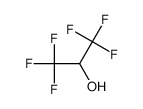






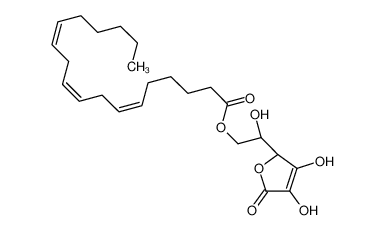
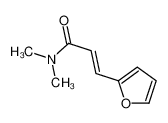





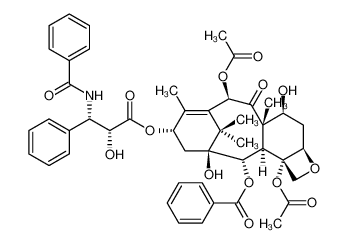
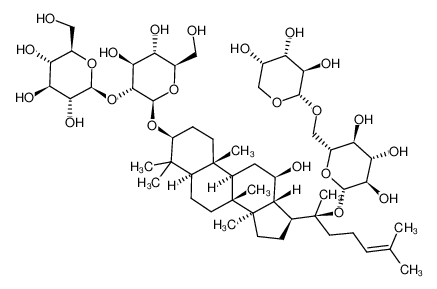
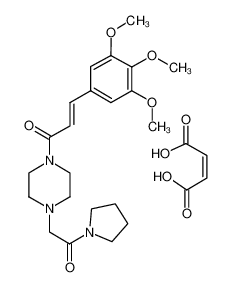
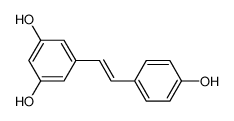

-
-

-
-
-

-
-
-

-
-
-

-
-
-

-
-
-

-
-
-

-
-
-

-
-
-

-
-
-

-
More Suppliers>>Baoji Guokang Bio-Technology Co., Ltd
CHINA
Purity: 99%
Lead Time: Day(s)
Price: -
Changzhou Xinxinglian Biotechnology Co., Ltd.
CHINA
Purity: 98%
Lead Time: 7 Day(s)
Price: -
Wenzhou Win-Win Chemical Co., Ltd.
CHINA
Purity: 98%
Lead Time: 3 Day(s)
Price: -
Hangzhou J&H Chemical Co., Ltd.
CHINA
Purity: >97%
Lead Time: 7 Day(s)
Price: -
Hangzhou J&H Chemical Co., Ltd.
CHINA
Purity: 99%
Lead Time: 14 Day(s)
Price: -
CHINA
Purity: 99.99%
Lead Time: 5 Day(s)
Price: Min $10000 /吨
Hangzhou Pharma & Chem Co., Ltd.
CHINA
Purity: 99%
Lead Time: 7 Day(s)
Price: -
Xiamen Zhixin Chemical Co., Ltd.
CHINA
Purity: 99%
Lead Time: 3 Day(s)
Price: -
CHINA
Purity: 99%
Lead Time: 14 Day(s)
Price: -
Skyrun Industrial Co., Limited
CHINA
Purity: 99%
Lead Time: 7 Day(s)
Price: -